Number Sequencing Normal Math Worksheets for Ages 5-7
12 filtered results
-
From - To
Explore our engaging Number Sequencing Normal Math Worksheets designed specifically for children aged 5 to 7. These worksheets help young learners develop essential numbering skills, such as recognizing patterns and understanding numerical order. Featuring a variety of fun exercises, our materials promote hands-on learning through visual aids and interactive activities. Whether at home or in the classroom, these worksheets are perfect for reinforcing classroom lessons and building confidence in early math abilities. Dive into a world of numbers and patterns, making math an enjoyable adventure for your little ones while laying the foundation for future mathematical success.
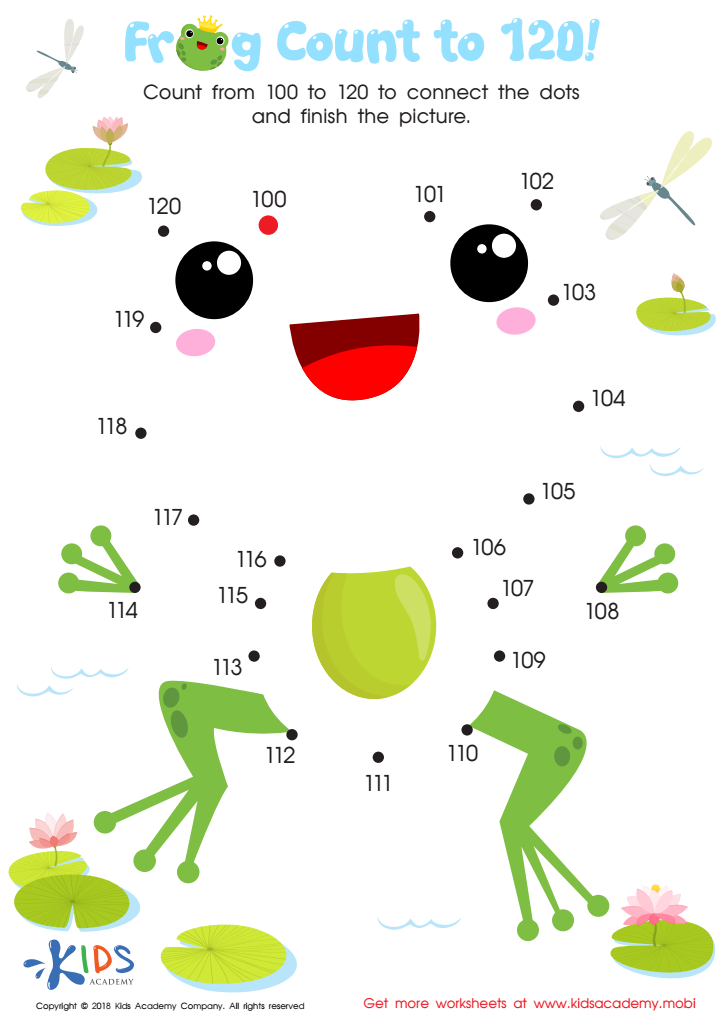

Frog Count to 120 Worksheet
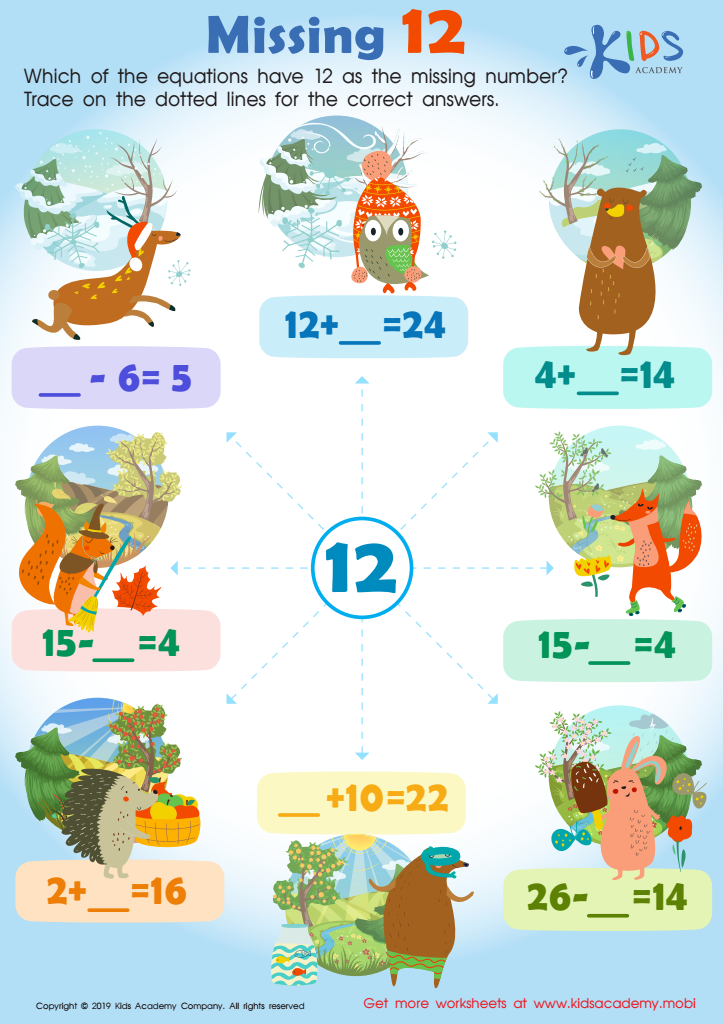

Missing 12 Worksheet
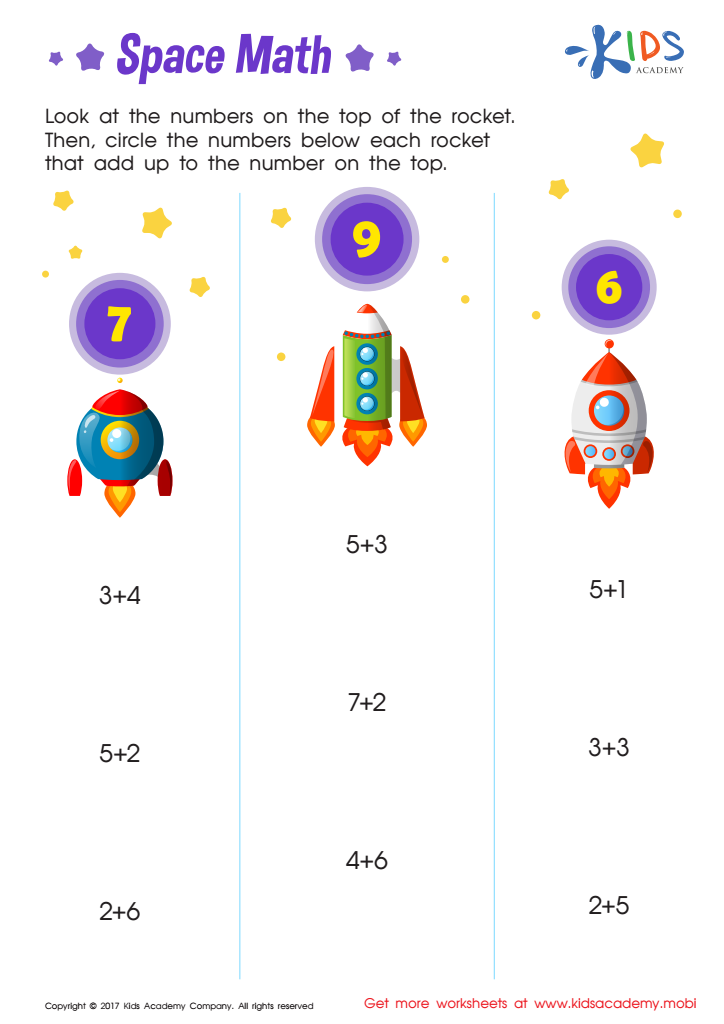

Addition: Space Math Worksheet
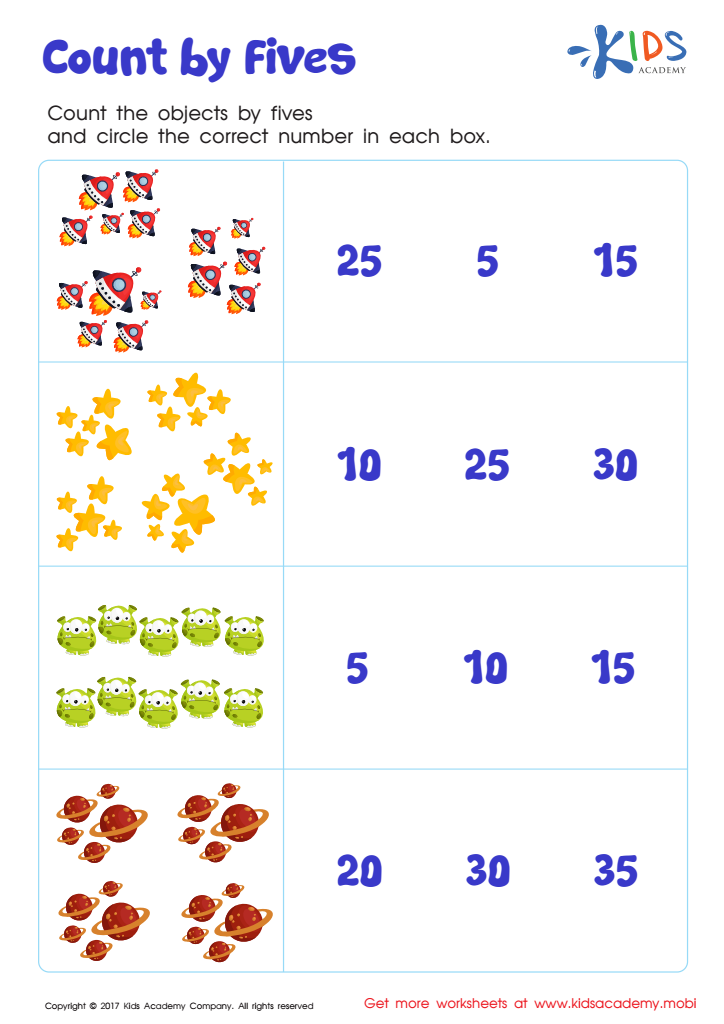

Skip Counting by 5s: Space Math Printable
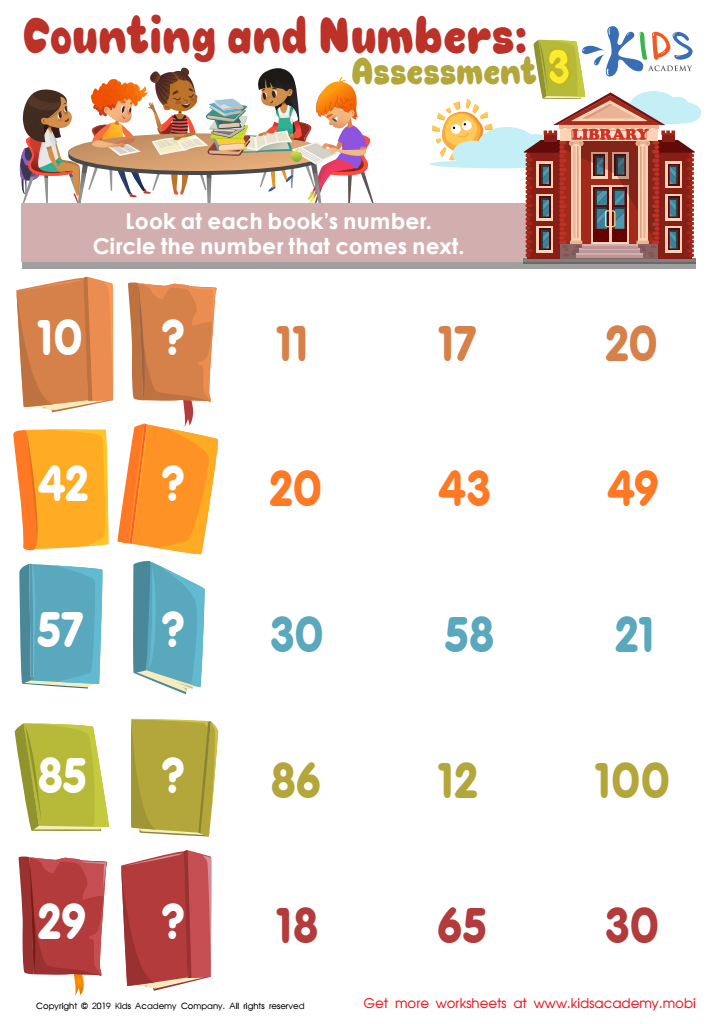

Counting and Numbers: Assessment Worksheet
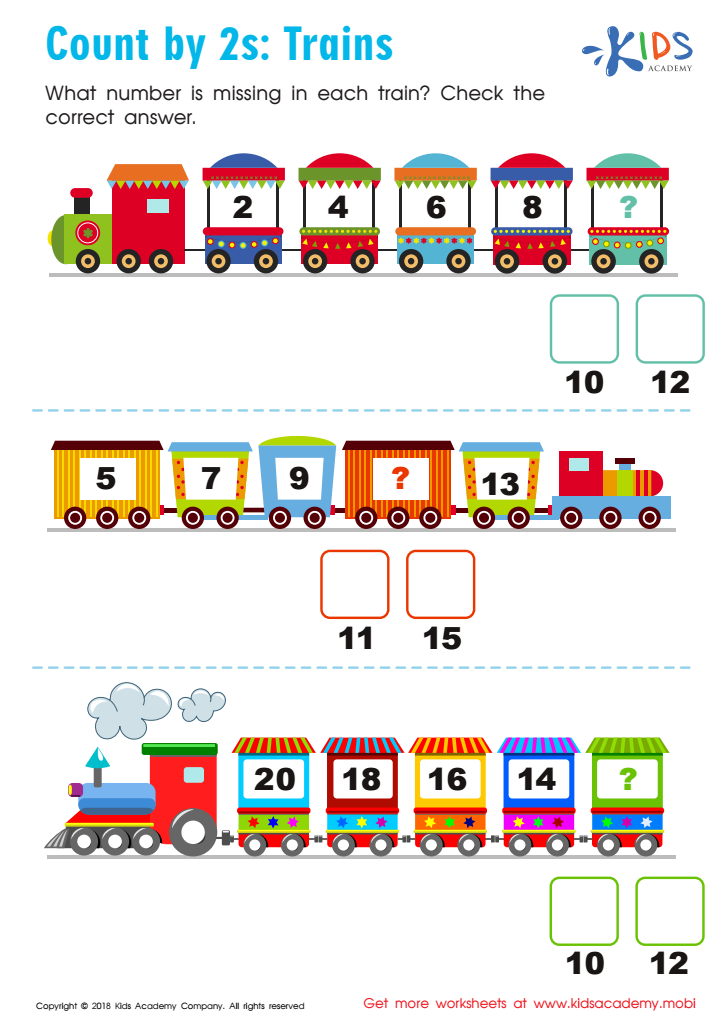

Count by 2's: Trains Worksheet
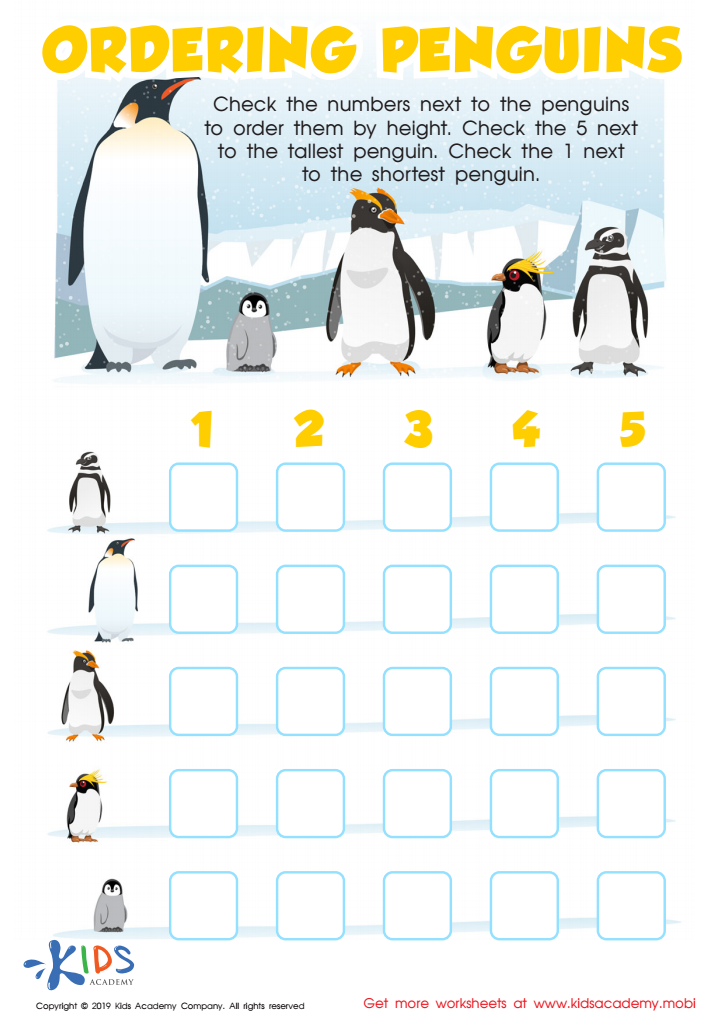

Ordering Penguins Worksheet
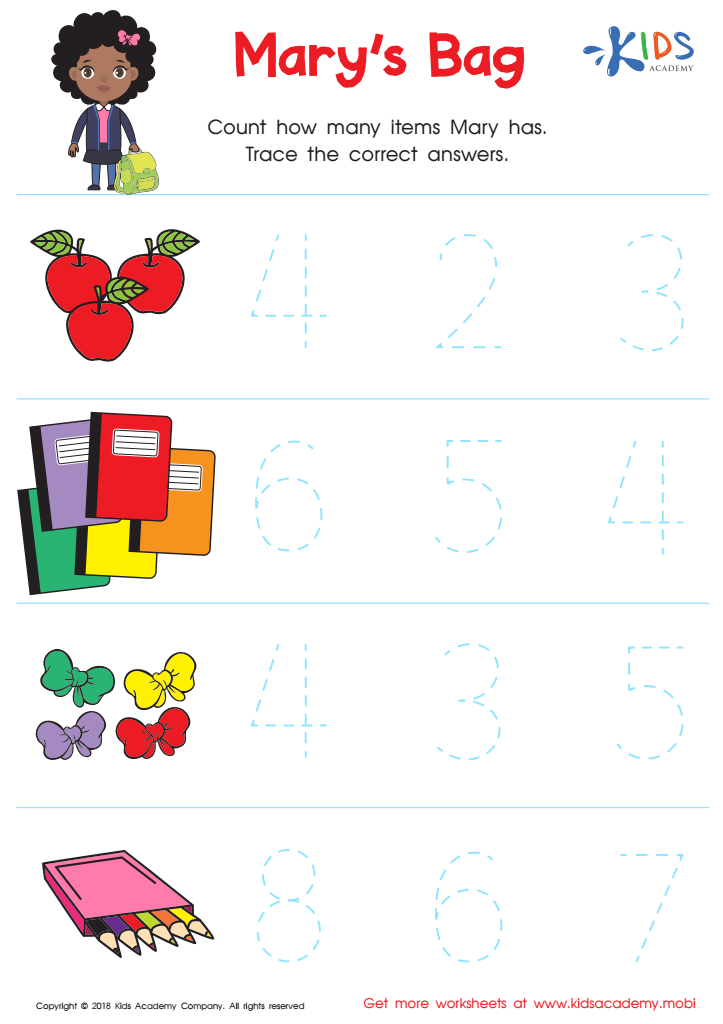

Kindergarten Number Tracing: Mary's Bag Worksheet
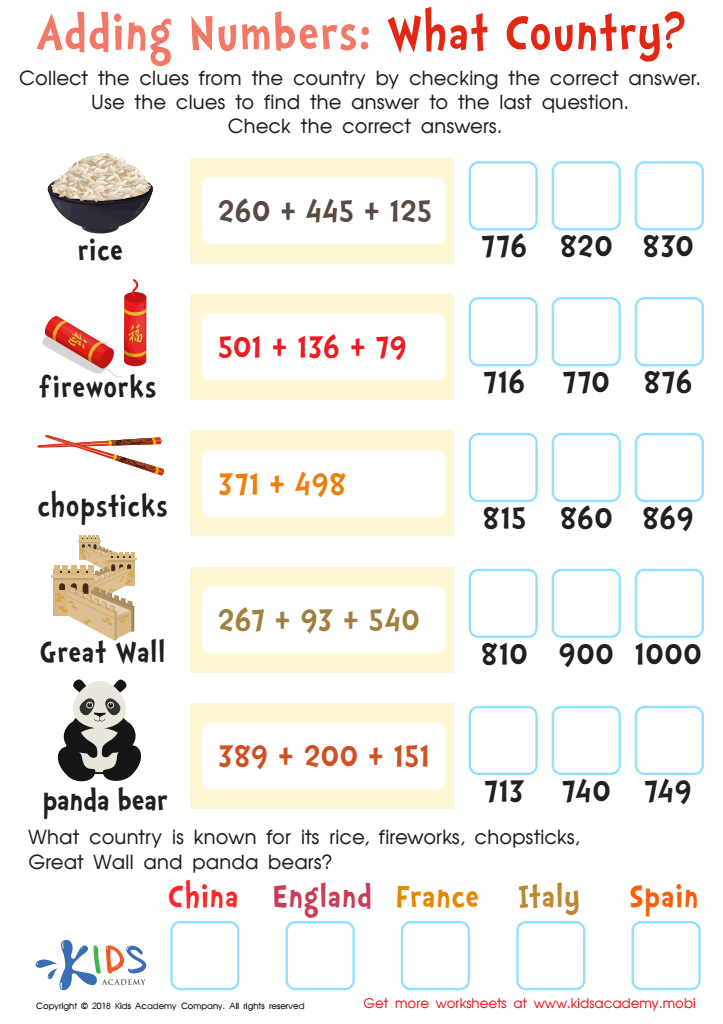

Adding Numbers: What Country Worksheet


Frog Countdown Worksheet
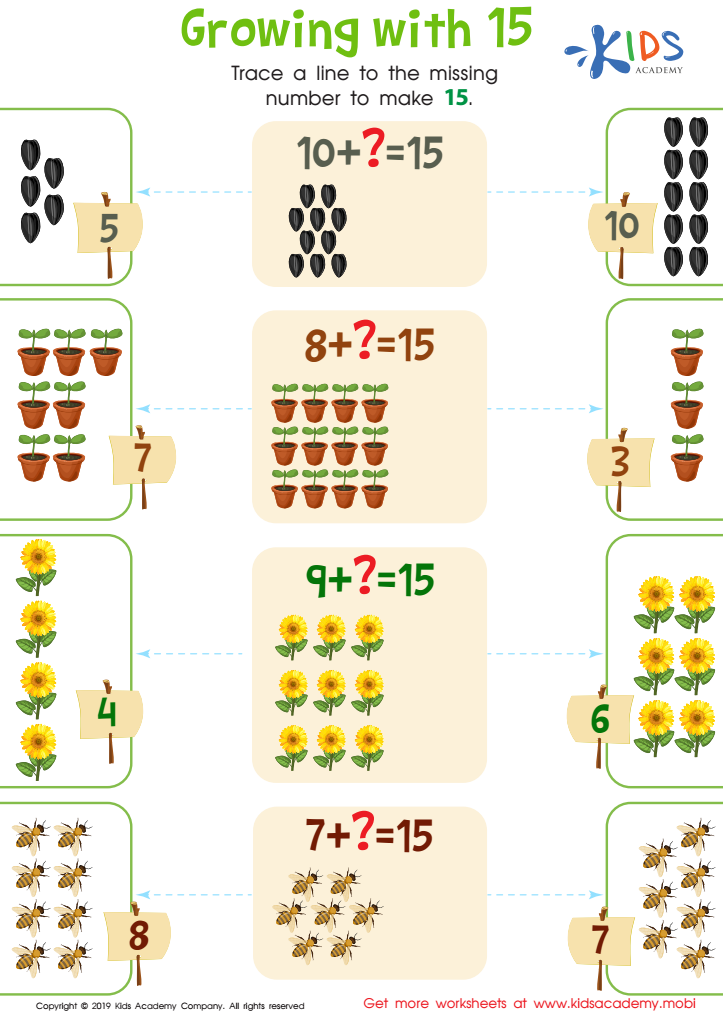

Growing with 15 Worksheet
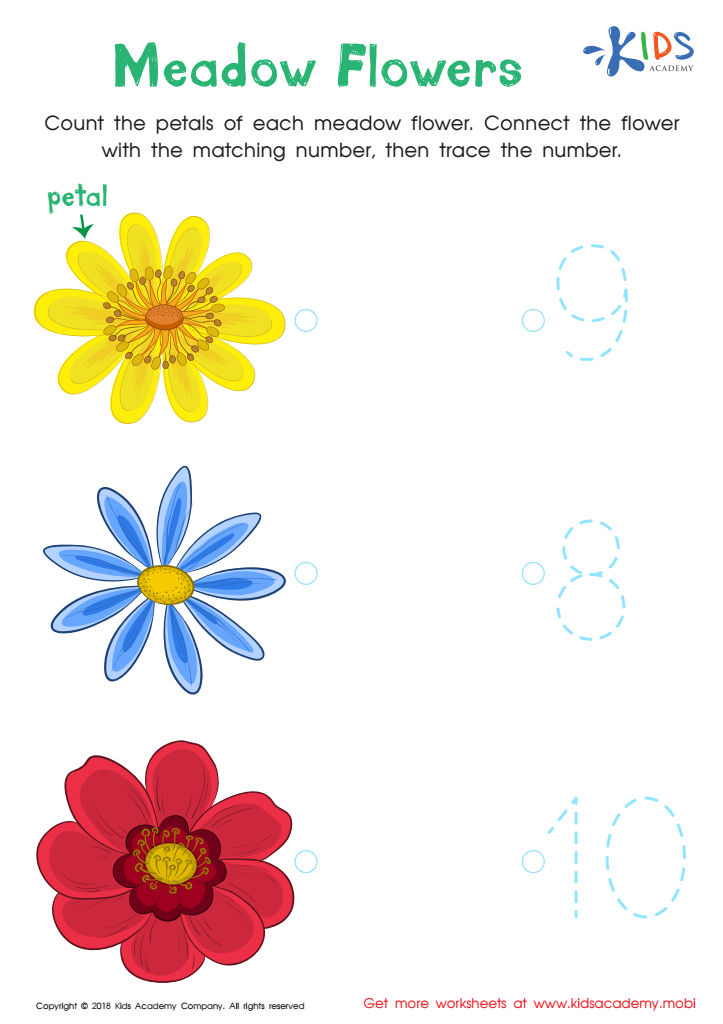

Kindergarten Number Tracing: Medow Flowers Worksheet
Number sequencing is a foundational skill in early mathematics that significantly impacts children's overall mathematical understanding. For parents and teachers of children aged 5 to 7, fostering a strong grasp of number sequencing is critical for several reasons.
Firstly, number sequencing helps children develop an understanding of order and position, essential skills for counting, basic addition, and subtraction. This skill set contributes to their ability to solve more complex math problems in the future. As children learn to recognize patterns in numbers, they create a stronger mathematical framework that enhances critical-thinking abilities.
Furthermore, engaging with number sequences encourages logical reasoning and problem-solving skills. Children learn how to predict and identify relationships between numbers, which are crucial aspects of mathematics. This understanding lays the foundation for more advanced concepts such as multiplication and division.
Additionally, fun activities that promote number sequencing, like games and interactive exercises, can enhance children's enjoyment and curiosity about math. This positive attitude towards math at an early age can lead to greater confidence and success in the subject throughout their academic journey.
In sum, number sequencing is vital for early math literacy, cognitive development, and fostering a lifelong appreciation for mathematics.
 Assign to My Students
Assign to My Students



















